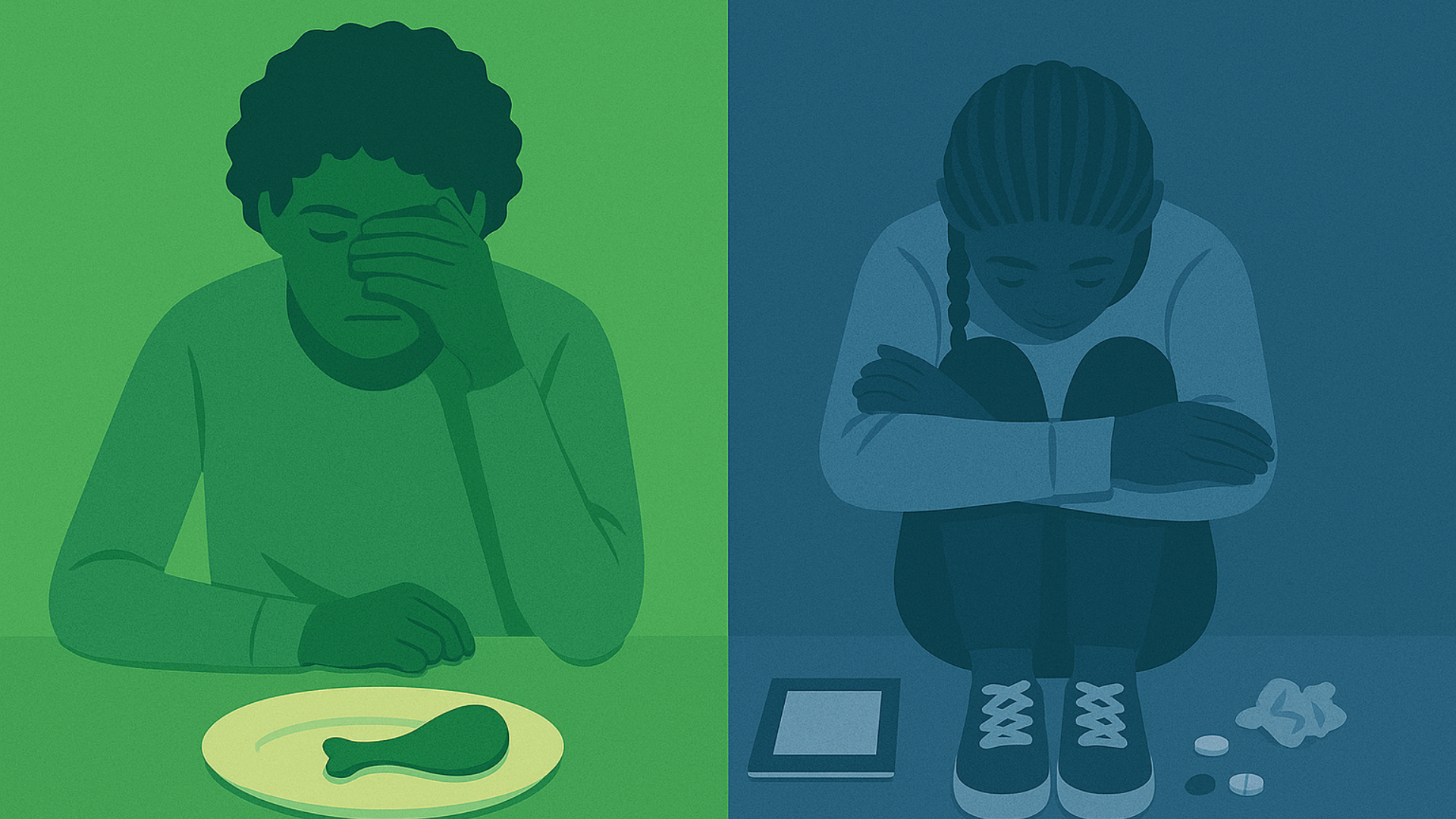June Gloom? Let’s talk about postpartum depression: A Q&A With Thrive’s Director of Perinatal Psychiatry

Thrive understands that the plight of new parents isn’t all roses, rainbows, and sunshine — even during the summer months. Alternatively, new parents may experience dark moods and deep pain that may symptoms of be postpartum depression. Learn more about postpartum depression from the Q&A below, featuring Thrive Reno’s Director of Perinatal Psychiatry, Andrea Thompsom, APRN, FNP-C, PMHNP-BC.
What can new parents expect in regards to their mental health after having a baby?
Everyone’s journey is different, and the expectations we have surrounding parenthood and particularly in the postpartum period are often what can affect our mental health in the biggest way. When we have ‘failed expectations,’ we often feel a sense of loss and grief, and this is ultimately how our mental health can be affected. The best expectation we can likely have is to be open-minded, learn as we go, and get the best support that we can from our family, peers, and professionals in order to feel confident in our own unique journey in parenthood.
What are some causes of postpartum depression?
There are many risk factors for postpartum depression. This is a very nuanced mental illness, meaning, there is typically not one ’cause.’ That being said, risk factors can include a history of depression, a lack of social support, stress (such as marital stress or financial stress), certain medical conditions (such as thyroid imbalance), or even major life events (such as the loss of a family member, a move, or the loss of a job). Other risk factors can include mothers of multiples, birthing people who have suffered from infertility, parents of NICU babies, or those who experience birth trauma or complications.
Are there any concerns that are prevalent during the summer months specifically that can contribute to postpartum depression?
Typically, the summer months can be a time when sunshine and summer fun can help to alleviate some depressive symptoms. That being said, there may also be activities that could contribute to worsening symptoms. As we venture outside, there may be increased anxiety surrounding going places with your children, feeling overwhelmed by the number of activities, or even the lack of structure that the school year can provide. A lack of social support can also contribute to postpartum depression, so if a parent is struggling to connect with other parents, feeling left out of activities, or does not live close to friends or family, this may be a tough time for parents.
How can a new parent know if they are struggling with postpartum depression?
It can be tough to recognize when you may be suffering from postpartum depression or any mental health concern, which is why it is so important for your support system to also be able to recognize signs or symptoms of concern. These may include crying or sadness that lasts longer than about one week following delivery (also known as the baby blues), increased irritability, loss of interest or joy in activities you used to enjoy, change in sleep or eating habits, feelings of guilt or shame, or even thoughts of harming yourself or your baby.
When should new parents seek mental health support for postpartum depression?
This can be tricky, as many parents may be unsure if they are ‘sick enough’ to seek care for their mental health, and there is a lot of a stigma surrounding this topic which prevents parents from reaching out. That being said, I recommend being as proactive as possible and first speaking with your OB-GYN or midwife about a postpartum plan that includes your mental health. It is never too early to seek treatment, and in fact, it is best to have a team in place (therapist, psychiatric provider, etc.) prior to your postpartum period that can help you with your mental health if the need arises.
Why is postpartum depression stigmatized? Why do you think some new parents are hesitant to seek mental health support?
This is a complex question as each of us has our own perceptions and preconceived notions surrounding mental health and treatment. We often have expectations surrounding birth and parenthood; that it is sunshine and rainbows and always enjoyable. If you have ever been a parent, you now know this is not the case! And so when things don’t go as planned, we often feel guilt. There is also unfortunately a lot of comparisons in parenthood to one another which often only serve to belittle ourselves; this heavily contributes to mental health stigma because we sometimes believe that if we suffer from mental health, we may not be good parents. This cannot be farther from the truth. What this means is we are humans and if we get the support we need, we can really teach our children valuable life lessons.
How can mental health treatment help new parents? What can a new parent expect while receiving mental health treatment?
Mental health treatment can and does save lives; it sounds extreme, but this is true. If you do seek treatment for your mental health with Thrive Wellness of Reno, you can expect to be treated with dignity, kindness and compassion with the goal to treat the whole person and family unit. Our hope is to meet you where you are, guide you through the most evidence-based treatments (which may include therapy, medication management, etc.), and help you on your journey to wellness, so you can better enjoy parenthood.
What are some simple day-to-day practices that new parents can use to boost their mood postpartum (especially this summer)?
It may seem daunting to ‘boost your mood’ if you are suffering from depression, however, there are some simple things you can do to work towards a more positive mental outlook. Parents can try to go outside for some fresh air and sunshine! While you are on your walk, take a few moments to use your five senses! Look around you, hear the birds, feel the leaves, smell the crisp air, and maybe even taste a sweet piece of candy! These small tasks can help to ground you and alleviate anxiety. Another important tip is to stay hydrated! Our bodies and minds need water. You may also consider taking a few moments each day to meditate. This does not have to be formal. Just take a few moments each day to take some deep breaths and show yourself gratitude.
To learn more about Thrive Reno’s perinatal mental health programs and services, reach out to us at (775) 525-8103.
About the Author
ANDREA THOMPSON, APRN, FNP-C, PMHNP-BC — Director of Perinatal Psychiatry
Andrea Thompson, APRN, FNP-C, PMHNP-BC is a Nurse Practitioner whose background has stemmed in primary care, primarily working with under-served and under-insured populations. After several years in family practice, she completed a Post Master’s certification as a Psychiatric Mental Health Nurse Practitioner. In early 2019, she started a program the first of its kind in Northern Nevada to integrate mental health services into a women’s health/OBGYN practice where she had a focus on perinatal mood and anxiety disorder diagnosis and treatment which solidified her passion for Perinatal/Reproductive Psychiatry. She has also completed certificate training with Postpartum Support International. As a postpartum depression survivor herself, she has a passion for helping other women throughout their journey to mental wellness. She and her husband moved to the Reno area several years ago from Seattle, WA to settle into a place to raise their family; they have three young boys. Aside from spending time with her family outdoors, Andrea is also active in the efforts to improve the sexual health education offered to the youth in our community as well as advocating at the state level to support Nurse Practitioner autonomy and Maternal Mental Health.








